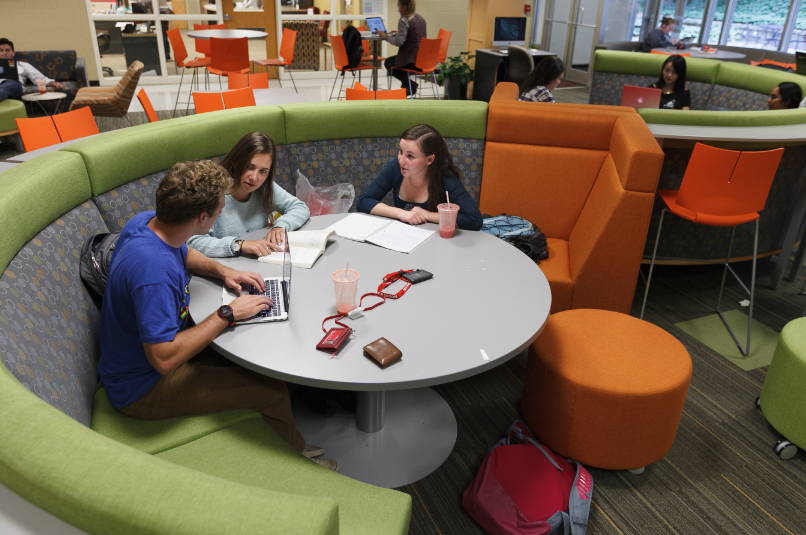30% Respond to Engagement Study in 10 Days
The Student Engagement survey will collect data about social and academic climates on campus.
The Student Engagement Survey, conducted by the Office of Institutional Research, garnered more than 700 responses by Sunday, Nov. 1, representing a 30 percent response rate in the 10 days after it opened on Wednesday, Oct. 21. Jason Rivera, director of institutional research, called the early response rate “fantastic” and hopes to receive more than 50 percent response by the time the survey closes on Nov. 24.
The Student Engagement Survey, which was sent by email on Oct. 21 to the student body, is a 15-minute questionnaire polling Dickinson students’ perception of the diversity, global education, sustainability and engagement on campus.
Michael Reed, vice president for Institutional Initiatives, said that the survey results “will give [the administration] a good road map of how our students are finding this institution.”
The questions posed in the survey went through several levels of review, said Rivera, who is overseeing the study. Rivera drafted the first version along with Reed, Korey Paul, senior research analyst and Mike Johnson, former director for institutional research. Students and faculty then reviewed the questions, along with President Nancy Roseman.
“This survey has been in development for quite some time,” Rivera said, calling the initiative “a response to the events going on nationally and central to Dickinson.” Rivera pointed to Michael Brown’s death in Ferguson, Missouri in August 2014 and the realization of Dickinson staff that “people were feeling that things could be better at Dickinson” as motivators for conducting the survey.
Originally, the survey was focused solely on “issues of diversity and inclusion,” Rivera said, “but as we were talking, we realized we really just need to start asking students what they think about things in general.”
Joyce Bylander, vice president of Student Life, says that the survey will allow the administration to “get a sense of how students are experiencing [Dickinson] and how we can make it better.”
The results so far have been “generally positive,” Rivera said. On a seven-point scale, the answers have been “averaging somewhere around five or six,” seven being the highest.
“There was a lot of concern that students were unhappy, [but] it seems that is not the case for the general campus climate,” said Rivera. “Maybe what’s happening is that faculty and administration are hearing mostly from unhappy students,” while in reality “the majority are pretty positive. It is very, very important that we hear from these students – I can’t stress that enough.”
Reed explained why it is vital for as many students as possible to take the surveys.
“You never want to give advice anecdotally, you want as much evidence and data as you can to guide your recommendations” for making changes to the college, he said.
The results of the survey will be broken down into groups – orientation, gender, race, etc. to see if students feel differently about their college experience based on those demographics. The information will then be used by the Strategic Planning Committee and will be “broadly shared with the entire community and presented to the Student Senate, student body and faculty,” Rivera said.
“First-hand experience – that’s what we want to know. And then we can put that all together and get feedback about groups,” explained Reed. “We would not gather this data if we were not prepared to share the results with the whole community.”
Once the survey closes on Nov. 24, focus groups will be organized based on the results.
“If we’re going to talk about diversity and inclusion, surveys are great, but we really need to talk to the students to ask ‘here’s what you’re saying, but what does that really mean for you?” Rivera said.
Rivera plans to re-poll the survey every two or three years. “If we are changing things, that would give us a real opportunity to see if it is working or not,” he added.
“This survey is a very important piece of info for administration to get a general sense of where students are at. If students want us to know how they are feeling, then they need to be vocal – take the survey, come to the focus groups,” Rivera reported.
Reed added that the survey “allows us to be true to Dickinson’s statement – students first.”






